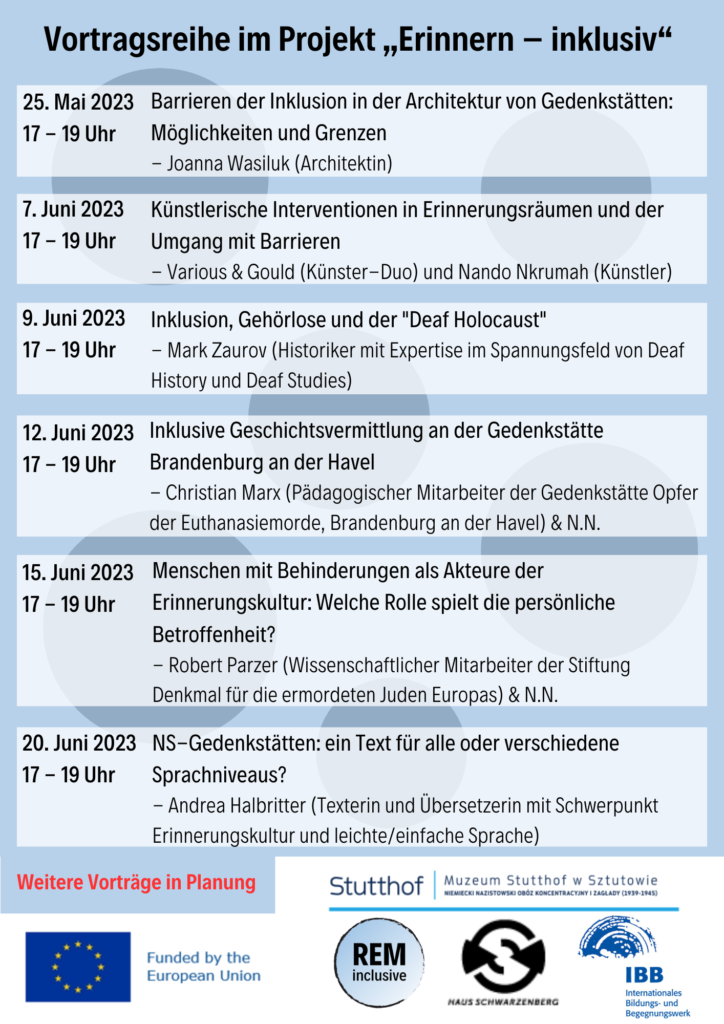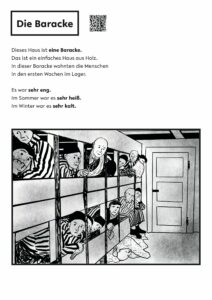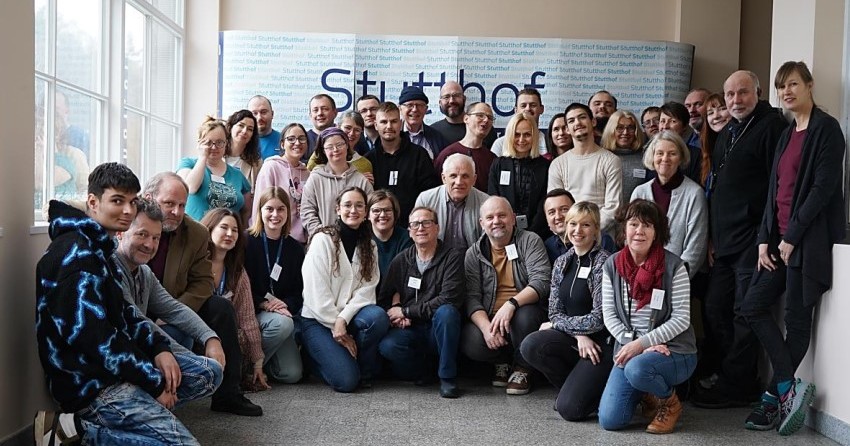This is the default page custom title
In Easy Language
In Leichter Sprache
Projekt_Erinnern-Inklusiv_in_Leichter-Sprache (German only)
Eine Auswahl der Prototypen zur Überwindung von Barrieren im Museum Stutthof
Introducing: The Results of the Needs Analysis to Identify Barriers in Memorial Sites
ALL PREVIOUSLY PUBLISHED CONTRIBUTIONS AT A GLANCE





